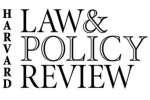 I am thrilled to announce that my article on First Amendment theory, “Beyond the Marketplace of Ideas: Bridging Theory and Doctrine to Promote Self-Governance,” recently came out in the Harvard Law & Policy Review. Here is the abstract:
I am thrilled to announce that my article on First Amendment theory, “Beyond the Marketplace of Ideas: Bridging Theory and Doctrine to Promote Self-Governance,” recently came out in the Harvard Law & Policy Review. Here is the abstract:
No theory dominates both public and judicial understanding of the First Amendment quite like the “marketplace of ideas.” While faith in free competition among ideas holds tremendous appeal, as an organizing theory for the formulation of First Amendment doctrine it has proven to be deeply problematic. The theory rests on an overly simplified account of public discourse, treating speech as a commodity that can be allocated through market-style transactions, and it has come to embody an extreme version of libertarian economic thinking that is undermining the very democratic processes the First Amendment was intended to serve and strengthen.
The belief that public discourse takes place within a self-regulating market that needs only the presence of more speech to produce “truth” has not held up to empirical scrutiny. Indeed, social scientists who study the impact of the Internet, social media, and other forms of digital information sharing on our public sphere paint a disturbing picture of the health of American democracy. Our current media ecosystem produces too little high-quality information; we tend to be attracted to information that confirms our existing biases about the world and to share this information with little regard for its veracity; and there are an increasing number of actors who seek to leverage these vulnerabilities to distort public discourse and undermine democratic decision-making.
This article applies the insights of constitutional structuralism to argue that the First Amendment was intended to play a vital role in the American constitutional system: facilitating self-governance by ensuring that citizens are capable of participating in the deliberative processes that are essential to a representative democracy. With self-governance as the touchstone, it lays out three principles that should guide the development of First Amendment doctrines. First, we need to move beyond the idea that the First Amendment’s only function is to enshrine free market ideology. Second, the First Amendment does not bar the government from addressing market failures in the actual markets in which communication takes place, especially when those failures undermine the public’s capacity for self-governance. Third, the capacity for self-governance turns, at least in part, on whether the public has the information it needs to effectively evaluate issues of public policy.
This article proposes a number of ways to bridge theory and doctrine to promote self-governance, including using antitrust law to address concentrated economic power in communication markets, expanding and enforcing privacy and consumer protection laws to create more competition among speech platforms, and initiating programs that support journalism and other knowledge institutions within society. It also argues that as an influential participant in public discourse, the government should have an obligation to wield its influence in ways that support self-governance, not undermine it by misleading its citizens or starving them of the information they need. I therefore propose two new rights that should be recognized under the First Amendment: a right not to be lied to by the government when it undermines the public’s capacity for self-governance and a right to information in the government’s possession that can assist the public in its efforts to understand and evaluate issues of government policy.
You can download the full paper on SSRN.
This article lays the groundwork for a series of articles I plan to write examining various First Amendment doctrines from the perspective of whether they advance or hinder self-governance. The first of these follow-up articles argues for an expanded right of access to government information. I’ll be sending that out to law reviews later this fall.

No comments yet.